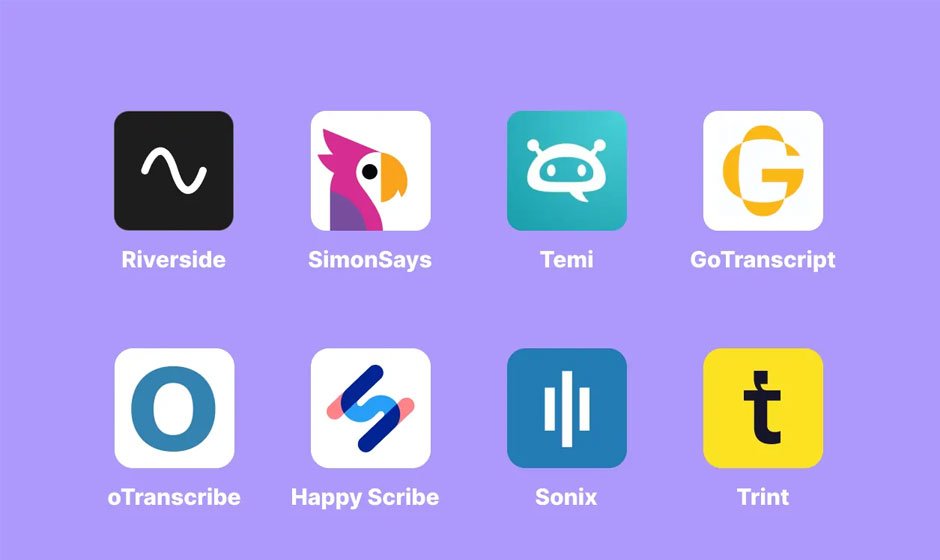Welcome to the era of podcasts, where storytelling, education, and entertainment converge in the digital soundscape. As the podcasting landscape continues to flourish, content creators face the challenge of making their podcasts stand out in a sea of audio. In this blog post, we’ll explore a game-changing tool that’s revolutionizing podcasting – AI transcription. Discover how AI transcription services are not only improving accessibility but also streamlining workflows, enhancing SEO, and transforming the podcasting experience.
The Podcasting Landscape
Podcasts have become an integral part of our daily media consumption, with millions of episodes covering diverse topics. However, the audible nature of podcasts poses challenges for those with hearing impairments and limits discoverability. This is where the transformative potential of transcription services comes into play, addressing these challenges and unlocking new possibilities for content creators.
The Power of AI Transcription in Podcasting
Enter AI transcription tools, the unsung heroes behind the scenes of successful podcasts. These tools utilize advanced algorithms to convert spoken words into accurate and searchable text. The impact is profound – not only does it make content accessible to a broader audience, but it also opens up avenues for content creators to repurpose and maximize the potential of their podcast episodes.
Improving Accessibility through Transcripts
Accessibility is a core principle of inclusive content creation. Podcast transcripts serve as the key to unlocking your content for individuals with hearing impairments. By providing a written version of your podcast, you’re not just meeting accessibility standards; you’re welcoming a wider audience into your podcasting community. It’s a small step with a significant impact, fostering inclusivity and diversity. So, whether you are converting audio or video to text, these online tools can be the perfect way to improve accessibility.
SEO Benefits for Podcasts
In the vast landscape of online content, discoverability is a constant challenge. AI-generated transcripts bring an unexpected ally to the table – Search Engine Optimization (SEO). Search engines love text, and by having transcripts for your podcast episodes, you significantly boost your chances of being discovered. Think of it as a backstage pass to the SEO party, where your podcast takes center stage.
Streamlining Content Creation Workflows
Creating captivating podcast content involves various stages, from ideation to editing. AI transcription services streamline these workflows by providing accurate transcripts. Imagine the efficiency gains in scriptwriting, editing, and repurposing content when you have a searchable and editable transcript at your fingertips. It’s not just about saving time; it’s about empowering content creators to focus on what they do best – creating compelling narratives.
Enhanced Audience Engagement
The connection between clear, searchable transcripts and increased audience engagement is undeniable. Listeners can easily find and share their favorite moments from your podcast, fostering a sense of community and interaction. Transcripts become a tool for listeners to revisit and share valuable insights, turning passive listeners into engaged advocates of your content.
How to Improve the Accuracy of the Text
Are you worried that transcription services will create a lot of errors in the text? This is often a concern for people who’ve never used AI software. First, the key is to find a reputable provider and one that has a lot of positive reviews. They should speak about their accuracy rates openly. But, know there are some things you can do to increase the accuracy rate. Let’s take a look at what they are.
Use Good Recording Equipment
If you’re going to be creating a lot of recordings or videos, it might be a good idea to invest in high-quality equipment. This will make a huge difference when it comes to picking up sound. It will be clearer and louder, which will help the online transcription service produce accurate text. Therefore, think about buying some of the best equipment from the beginning, and it’ll pay off later on.
Position the Microphones Carefully
Think about where the microphones are going to be to record the sound. You don’t want them far away from the speakers. Instead, you want to position them nearby so that they’re able to gather all of the important sounds. It’s also good to make everyone aware of where the microphones are so that they can project their voice towards them.
Reduce Background Noise
Know that background noise will affect how clear voices are on a recording. The best thing you can do is ensure that background noise is kept to a minimum to begin with. For instance, switch off fans or air-conditioning units, shut office doors and turn off radios. The focus must be on the voices. The clearer the audio, the more accurate the text.
Use Clean-Up Software
If you listen to the recording and know that it’s not the best quality, there is something you can try before using online transcription services. You can try out clean-up software. In some cases, this can work to diminish background noises and echoing. It could help the online transcription service pick up the voices, which can keep mistakes to a minimum. Just ensure you do your research regarding these tools to find a good one and a company that you trust with your recording.
Conclusion
In conclusion, AI transcription is not just a tool; it’s a catalyst for transforming your podcasting experience. From improving accessibility to boosting SEO and streamlining workflows, the benefits are far-reaching. As you embark on your podcasting journey or seek to elevate your existing content, consider the untapped potential that AI transcription brings to the table. Embrace the future of podcasting, where clarity meets accessibility, and let your content resonate with a global audience.






